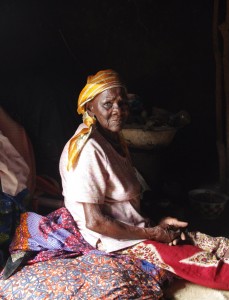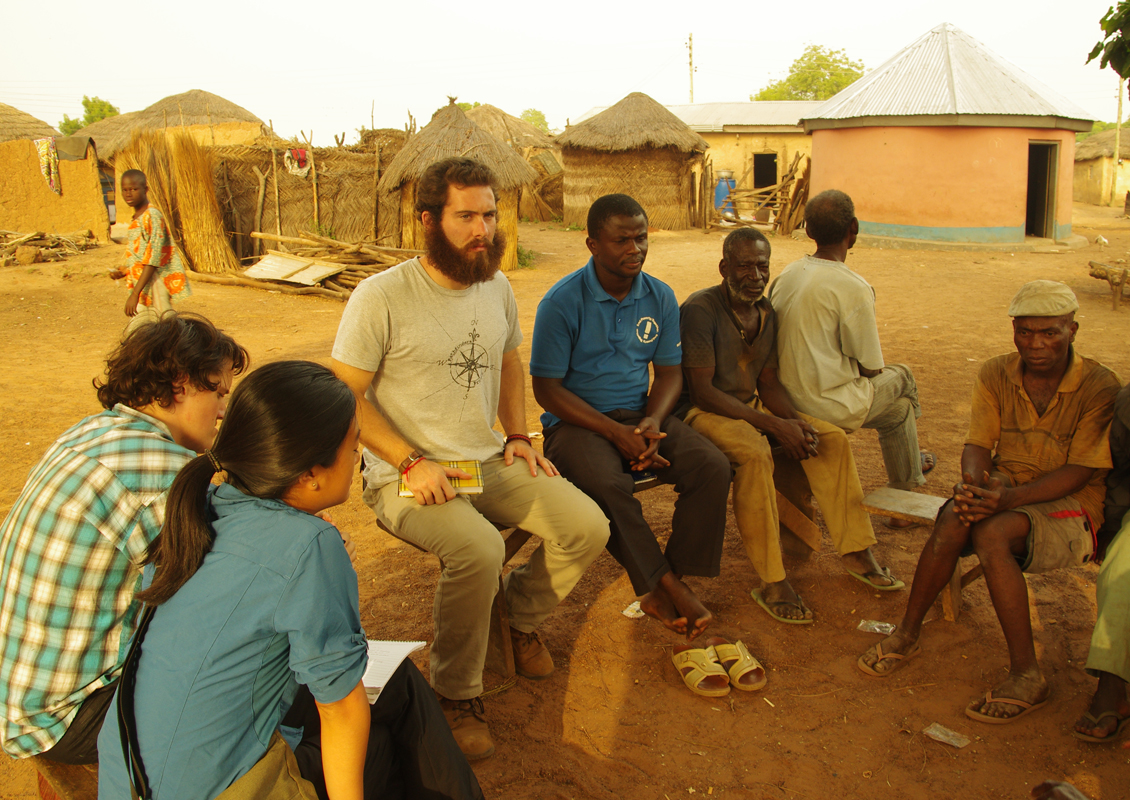Help Free the “Witches” of Ghana Humanist Service Corps Now Accepting Applications
 Shenka Kwame, alleged witch in Kukuo, Northern Ghana. (Photo via Foundation Beyond Belief)
Shenka Kwame, alleged witch in Kukuo, Northern Ghana. (Photo via Foundation Beyond Belief) Last Spring, the Humanist featured an article by Wendy Webber about Pathfinders Project, a yearlong international service trip sponsored by Foundation Beyond Belief. Pathfinders Project was the initial step toward a first-of-its-kind program enabling humanists to put their values into action through global service, and was named as such because its volunteers vetted partner organizations and scouted locations for this future program as they contributed 6,000 hours of service to clean water, education, human rights, and environmental conservation projects.
Building upon the work of the Pathfinders, Foundation Beyond Belief is excited to announce that the Humanist Service Corps is now a reality.
Beginning in 2015, Humanist Service Corps volunteers will support Songtaba and other locally led human rights organizations in the effort to address the causes and consequences of witchcraft accusations in the Northern Region of Ghana. Although 70 percent of Ghanaians believe in witchcraft, it is only in the northern region where women are forcibly and often violently exiled from their communities after being labeled as witches. The accused are usually elderly widows, women who no longer have husbands to protect them and who are ineligible for remarriage because they cannot bear children. Other targets for accusation are women who defy accepted gender norms by being outspoken or accruing independent wealth through business. The accusations also have an impact on the youth of northern Ghana, since children are often sent as caretakers for the accused. It is the only support most families feel they can safely provide to the women, and it is just as much a deprivation for the children as for the alleged witches.
Conditions in the camps for women accused of witchcraft are deplorable. Along with their dependents, they face insufficient access to clean water, food, and healthcare, inadequate housing, and continued abuse. Nonetheless, the existence of these camps is the only reason the women are allowed to flee with their lives when they are accused. In addition to believing in witchcraft, Ghanaians believe that certain areas of land can strip witches of their powers. No such complementary belief exists in Nigeria, Senegal, or the Ivory Coast, where women accused of witchcraft are executed by their communities. Thus, though the women find little comfort in the camps, there is safety in their squalor.
In 2011, the Ghanaian government announced a plan to disband all witch camps by the end of 2012. The government scuttled this plan in the face of outcry from women’s rights organizations and the exiled women themselves, who knew that safe reintegration would not be possible before work was done in the communities where accusations occur. Given these circumstances, the aims of the Humanist Service Corps are clear but by no means simple. Humanist Service Corps volunteers will work toward the short-term goal of improving conditions in the camps for alleged witches and the long-term goal of eliminating the circumstances that lead to witchcraft accusations. The Foundation Beyond Belief and its partner organizations know these goals are attainable because some progress has already been made. On December 15, after more than four years of collaboration by Ghana’s Ministry of Gender, Children, and Social Protection, ActionAid, Songtaba, and other human rights organizations, the Bonyase camp for alleged witches was formally disbanded and its fifty inhabitants reintegrated into the communities of their choice. It was a historic step forward for human rights in Ghana, but much remains to be done.

Meeting with the tindana (fetish priest) and other elders at the Kukuo camp for alleged witches. (Photo via Foundation Beyond Belief)
There are still five camps with more than 550 women living in exile and at least that many young children who have been sent as their helpers.
It is no accident that all six camps for so-called witches exist in the region with a poverty rate three times higher than the national average, where 75 percent of adults are illiterate compared to 43 percent nationally. It is no accident that accusations double during malaria season in the region with the poorest access to healthcare. Though most residents in Ghana’s other nine regions also believe in witchcraft, they go to the hospital when they recognize the fatigue and fever of malaria. They don’t blame it on their neighbors. Thus, the goal is not to eradicate superstition in the northern region but to render it unnecessary as an explanation for hardship.
Think you’ve got what it takes to help make that happen? Find more information about the Humanist Service Corps program and apply today at http://humanistservicecorps.org/apply.
